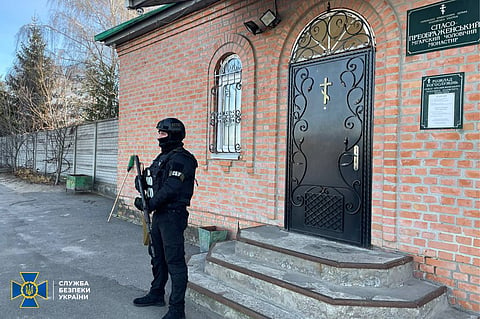

Ukrainian authorities confirmed Sunday that two suspects believed to be behind the assassination of a senior Ukrainian Security Service (SBU) officer were killed during an operation to apprehend them near Kiev.
The SBU identified the suspects as Gulalizada Khagani and Narmin Guliyeva, both Azerbaijani nationals. They were killed in a shootout with Ukrainian security forces who had tracked them to a hideout outside the capital. The SBU released footage showing their bodies at the scene.
The two individuals were accused of assassinating Colonel Ivan Voronych, a high-ranking SBU officer, on Thursday. Voronych was shot dead by a masked gunman using a silenced pistol in a parking lot in Kiev. Ukrainian officials said he had been involved in covert operations inside Russia since 2014, including sabotage and assassinations.
According to the SBU, the suspects were operating on behalf of the Russian Federal Security Service (FSB) and were part of a Russian-backed cell infiltrated into Ukraine. The agency emphasized that this was not the result of an internal dispute but a foreign-directed targeted killing.
The killing of Colonel Voronych and the confirmation of Russian intelligence involvement marks a serious escalation in what has been described as a "dirty war" between Moscow and Kiev. Both sides have increasingly turned to clandestine methods, including targeted killings and sabotage deep behind enemy lines.
Since 2014, Ukraine has been accused of orchestrating assassinations of separatist leaders in Donbas and covert operations within Russian territory. Following the full-scale invasion in 2022, Ukraine has reportedly expanded its sabotage operations inside Russia, targeting infrastructure and senior personnel. Until now, Russia had largely refrained from similar high-profile retaliatory strikes within Ukraine.
Colonel Voronych reportedly led the 1st Department of the SBU’s 16th Directorate, believed to be a CIA-supported unit responsible for espionage, counterintelligence, and covert operations against Russian interests.
The assassination may have been a direct response to a series of bombings in June that targeted railway bridges in Russia’s Kursk and Bryansk regions, which left at least seven people dead.